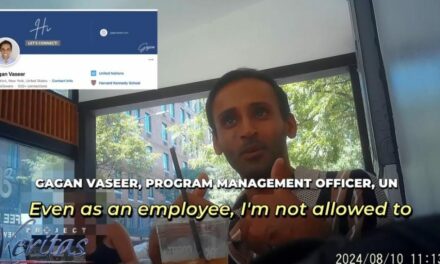We support our Publishers and Content Creators. You can view this story on their website by CLICKING HERE.
The Tennessee Bureau of Investigation (TBI) has confirmed that the violent Venezuelan gang Tren de Aragua is now active in every major city across the state, with its influence also spreading to smaller towns.
During a meeting with Governor Bill Lee, TBI Director David Rausch warned of the gang’s escalating activities in Tennessee, where they pose a serious public safety threat.
Authorities are particularly alarmed by Tren de Aragua’s involvement in human trafficking, as well as their violent clashes with rival cartels.
These developments highlight the gang’s growing presence and the urgent need for a coordinated response to mitigate their impact on communities across the state.
The Tren de Aragua gang, originally formed in Venezuelan prisons, has resurfaced in Tennessee, with a particularly strong presence in cities like Memphis and Nashville.
TBI Director David Rausch noted that after a two-year absence, the gang has reappeared in significant numbers.
Although Knoxville law enforcement has yet to confirm Tren de Aragua’s activity locally, TBI officials report that members are changing their appearances to evade detection, complicating efforts to track their movements.
Tren de Aragua has gained infamy for its ruthless exploitation of vulnerable populations, especially migrant women and girls, through human trafficking and sex trafficking.
This Venezuelan gang typically establishes its foothold with trafficking operations before expanding into other criminal enterprises, including organized retail theft, drug trafficking, and violent confrontations with rival cartels.
Tren de Aragua’s members demonstrate an alarming willingness to engage in public brutality; in one case, they filmed themselves executing a cartel member in broad daylight, shooting him 31 times, and posted the footage online to intimidate others.
Such brazen displays of violence underscore the serious threat the gang poses not only in Tennessee but across borders.
With their transnational reach and violent methods, Tren de Aragua has become a critical focus for U.S. and international law enforcement efforts.
The U.S. Department of Homeland Security (DHS) is currently investigating over 600 migrants for possible ties to Tren de Aragua (TDA).
In July 2024, the U.S. Department of the Treasury officially designated the Venezuelan gang as a transnational criminal organization, emphasizing its growing influence across the Western Hemisphere.
The Biden administration is offering a $12 million reward for information leading to the capture of Tren de Aragua’s leader, Hector Guerrero, known as “El Niño,” along with other top figures.
Guerrero, who was imprisoned for killing a police officer, escaped Venezuelan custody and is believed to be hiding in Colombia with other gang leaders.
Tren de Aragua, originally formed over a decade ago in a notoriously lawless prison in Aragua, Venezuela, grew in power as millions of Venezuelans fled the country’s economic and political collapse under President Nicolás Maduro.
The gang initially targeted these migrants through human trafficking, loan sharking, and smuggling, but over time, expanded its operations to include drug trafficking, extortion, and violent confrontations with local criminal syndicates across Latin America.
TDA’s influence now spans countries like Colombia, Peru, and Ecuador, where its violent crimes have worsened already high murder rates.
The gang has even forged alliances with notorious organizations such as Brazil’s Primeiro Comando da Capital, solidifying its transnational reach.
Despite Venezuelan government claims that Tren de Aragua was dismantled after a prison crackdown, recent arrests and extraditions of its members suggest otherwise, pointing to the gang’s enduring power.
U.S. officials, including Senator Marco Rubio, have warned that Tren de Aragua has now been detected in cities like Chicago, South Florida, and New York.
The reason these gangs are able to function in Tennessee is that, even in the reddest, most heavily armed state, blue cities refuse to acknowledge their existence.
The liberal establishment and mainstream media have gone so far as to dismiss reports of Tren’s activity as conspiracy theories, making it impossible to have a serious conversation about the threat.
By ignoring the presence of these Latin American gangs, they ensure the problem isn’t addressed, putting public safety and communities at risk.
The reason these gangs continue to thrive is that addressing their activities would force liberals to confront uncomfortable truths about their policies on illegal immigration and drug use.
Tren de Aragua comes from Venezuela, so any criticism of the gang is dismissed as racist or anti-Latino, as if conservatives would somehow tolerate the same level of violence and criminality if it were committed by a white gang of Anglo descent.
This obsession with political correctness is creating dangerous blind spots. It’s letting violent transnational crime groups infiltrate our communities, undermine public safety, and erode the rule of law.
If we keep refusing to acknowledge the reality of these gangs, we’re prioritizing ideological narratives over the safety and well-being of Americans.

 Conservative
Conservative  Search
Search Trending
Trending Current News
Current News 





